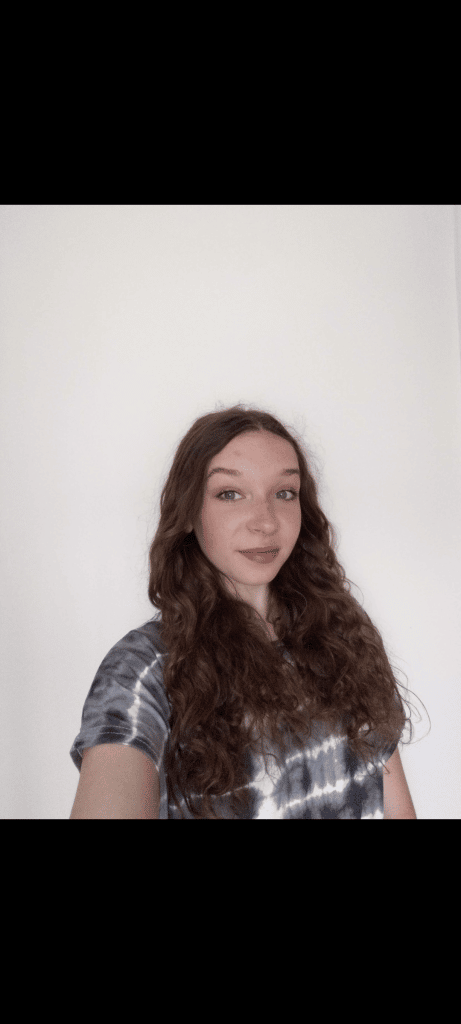
,
Abigail Booth
Student
I applied to the program after I applied to the Hull-York WP program and despite getting rejected from there I was accepted...Tell us a little bit about your background…
I grew up in a town called Whitley Bay, which is a great area about 25 minutes outside of Newcastle. It used to be a big, popular seaside resort and there are still loads of fish and chip shops, amusement arcades, and photographs all around the town of the beach packed with families in the 1950s.
While I did ‘tick a lot of boxes’ growing up, like going to a state school in an area with lower progression to university and having no parental history of higher education, I never saw myself as ‘disadvantaged’. I was lucky enough to have a fantastic home life with an incredibly supportive family, something which lots of the young people I work with now haven’t experienced. My dad dropped out of school when he was about 14 because he wanted to be a surfer – as you do – and my mum ended up leaving just after her O-Levels because her family couldn’t afford the glasses she needed to see the chalkboard. Having gone through experiences like that, they were passionate about their kids’ education.
What led you to apply for a UK Summer School and what was your experience like?
I was encouraged to apply for a UK Summer School by teachers at my school in North Shields. While they didn’t necessarily know the ins and outs of university processes – especially for universities like Oxford or Cambridge – they made up for it with their support and encouragement.
My time on the UK Summer School was a completely transformational experience. On the academic side, I remember having the opportunity to go into the geography labs to do some soil sieving (more interesting than it sounds, I promise!) and to complete a small extended piece of work in groups. As part of the group project we got to the chance to meet a lot of the teaching staff and to ask them questions. This was cool because I got a recommendation for a book to read which I mentioned in my personal statement.
Beyond what I learned in the classes, the whole experience raised my confidence. I was staying in Sidney Sussex college, which is quite old and grand-looking, and I think if I’d have just gone to an open day I might have felt intimidated, but being there with other people in the same boat was encouraging.
How has your career developed after the programme?
After the programme I applied and was accepted to study geography at Cambridge, which was great as I’d already met a load of the staff during my UK Summer School. I was considering going into teaching, but during my degree I got involved with the access and student ambassador work at the university and really enjoyed it. Those experiences set me off on a career centered around universities, admissions, and supporting young people to access higher education.
I started my first job in the admissions office of my college in Cambridge right out of university – I graduated on Friday and started working on the Monday! I was leading on widening participation in the South West, which gave me a chance to speak to loads of different young people, from those attending huge further education colleges to tiny coastal schools. After that I moved on to a student recruitment role at King’s College London, then on to AccessHE and I’m now working at a charity called Become, which supports and celebrates care experienced young people.
My role is a lovely blend of leading workshops for young people and doing more behind the scenes in terms of policy, influencing and research. This takes many forms, but basically we do anything we can to shake people up and remind them there is a care system with 75,000 children who deserve their attention. Part of that is working on the Propel website, which my boss calls “UCAS for care-leavers”, as it shows you all the support universities offer students with care experience. The part of my job I find really remarkable, though, is talking to care experienced young people. So many of them are able to reflect on what they’ve gone through and want to use their own experience to try and improve the system for others.
What are your ambitions for the future?
My ambition is to continue working in in the public or third sector to support children and young people. I’ve got a really soft spot for the North East, so it would be fantastic to either go back there or do some more specific work on the area, but that’s further in the future.
Do you have any advice for future Sutton Trust students?
Talk to as many different people as possible; tell them what you want to do and hold them to account! It can be tough to vocalise your ambitions but when I was a student I was often surprised by the amount of effort people would put in to support me. Plus, you never know who other people know – by reaching out you can sometimes even access other people’s useful networks.